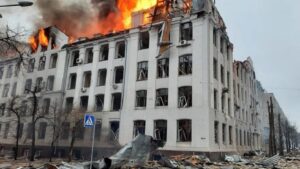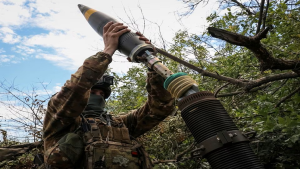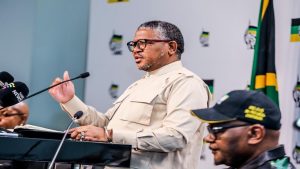Danila Davydov said he left Russia within weeks of the Kremlin sending troops into Ukraine because he feared having to fight in a war he doesn’t support.
The 22-year-old digital artist who had been living in St Petersburg said that as the conflict dragged on he was concerned that Russia could place pressure on young people like him to serve in the military.
“I didn’t want to go to war or go to prison, so I decided to leave,” Davydov told Reuters from Kazakhstan, where he said he’s currently working.
He is among what some lawyers and rights advocates say is an increased number of young Russian men looking to avoid the country’s mandatory military service since the conflict with Ukraine began in late February, illustrating the ambivalence in Russian society to the conflict.
Some young men are leaving the country while others are seeking advice on obtaining exemptions or alternative avenues, or simply ignoring their summons in the hopes that authorities don’t pursue them, according to Reuters interviews with seven men currently seeking to avoid serving in the military as well as five lawyers and rights advocates.
That is despite the risk of facing fines or up to two years in prison – in a country where military service is mandatory for young men aged 18 to 27. One man told Reuters that refusing to fight has led to tensions with family members who believe military service is a young man’s duty.
Davydov said that he was able to take himself off the military service register and leave the country because he had a job offer abroad. He wants to return home one day, he said, but laments it may not be any time soon: “I love Russia and miss it very much.”
The Kremlin referred questions to the defence ministry, which didn’t respond to a request for comment about how widespread draft avoidance is and whether it is impacting the function of the Russian armed forces. The ministry, on its website, says that “service in the army and navy is the honourable duty of a Russian citizen that bestows considerable advantages in the future.”
Moscow says it is conducting a special military operation and that it is going as planned. Russian President Vladimir Putin has lauded those who fight for Russia as “heroes” who are saving Russian-speakers from persecution and foiling what he says is a Western plan to destroy Russia. In March, he described Russians whose thoughts were more in line with the West than Russia as “traitors.”
On Feb 24 Russia sent thousands of troops into Ukraine, embarking on Europe’s biggest ground invasion since World War Two. Following Russia’s withdrawal of troops from near Kyiv, the war has slowed to a grinding artillery contest with Moscow focused on taking territory in eastern Ukraine.
Putin is betting on a professional army that the West says has sustained significant losses in the war. If the army cannot recruit enough contract soldiers, Putin’s options would include using conscripts, mobilising Russian society or scaling back his ambitions.
Although Putin has repeatedly publicly said conscripts should not fight in the Ukraine conflict, the defence ministry in early March said some already have. Last month, a military prosecutor told the upper house of parliament that about 600 conscripts had been drawn into the conflict and that around a dozen officers had been disciplined as a result.
Ukraine has imposed martial law: men aged 18 to 60 are banned from leaving the country. Kyiv says it will fight to the end against what it casts as an unprovoked imperial-style land grab.
‘Many people are scared’
Since Peter the Great transformed Russia into a major European power, its rulers have often relied on conscription as part of Russia’s vast military, one of the world’s biggest fighting forces. Men of military age must serve a year as a conscript. Russia calls up around 260,000 annually in a twice-yearly draft. Russia’s combined armed forces total about 900,000, according to the London-based International Institute for Strategic Studies (IISS).
Avoiding the draft is a well-established practice, including via legitimate routes like deferring service by studying and claiming medical exemptions. But recent months have seen an increase in young men seeking help on how to do so, according to four lawyers and rights advocates groups that offer advice and legal aid to such young men. That has been mostly from people in major cities like Moscow and St Petersburg, according to two of those.
One group that provides free legal advice called Release is co-run by Dmitry Lutsenko, a Russian now living in Cyprus. He said the membership of a public Telegram group for those seeking advice on how to avoid conscription that the group runs has increased to more than 1,000 people, up from about 200 prior to the conflict.
Another rights group, called Citizen. Army. Law, focuses on advice to people seeking alternative types of military service, which involves working in a state-run organisation such as a hospital instead of the military. The group said it had seen a ten times increase in the number of people asking about alternative service to more than 400 this year, compared to about 40 during the equivalent period last year. “Many people are scared. They don’t want to go into an army that is fighting,” said Sergei Krivenko, who heads the organisation.
Lawyer Denis Koksharov, chairman of the Prizyvnik legal association, said that earlier in the conflict he had seen a roughly 50% increase in the number of people seeking advice on avoiding military service, without specifying numbers. He added that the number of requests had since declined and more recently the organisation has seen an increase in young men wanting to volunteer to fight.
Koksharov attributed the fluctuation to people becoming accustomed to the current situation and an increase in people “displaying patriotism.”
Missing home
Fyodor Strelin, a 27-year old from St Petersburg, said he had protested against the war in the immediate aftermath of the invasion but decided to leave Russia in late February.
Now in the Georgian capital of Tbilisi, Strelin said he had previously avoided the draft after securing an exemption last year due to shortsightedness but chose to leave Russia due to concern about a general mobilisation. “I miss my home and for now I feel that I lost my place in life,” he said.
Some young men who have been summoned for military service are ignoring the call in the hopes that the authorities get sufficient take up elsewhere, according to six of the young men, lawyers and rights advocates that Reuters spoke to.
Kirill, a 26-year-old from southern Russia who works in technology, said that he received a conscription summons in April followed by a phone call in May requesting he attend a medical but has not responded because he doesn’t support Russia’s operation in Ukraine.
That has caused tension with some family and friends who back the war and believe everyone should do their service, said Kirill, who asked his surname not be used. “The people in Ukraine are like brothers. I know many people in the country and I can’t support these actions,” he added.
In June, police visited his home when he was out and asked his mother why he was avoiding his military service, according to Kirill. Reuters wasn’t able to corroborate Kirill’s account. Reuters attempted to reach the Russian interior ministry’s media relations office. The person answering the phone provided another number that went unanswered on multiple attempts. Reuters also sent an email but received an automated response saying it was undeliverable.
War and peace
Kyiv and Western allies estimate that Russia has lost at least as many men as the 15,000 Soviets killed in the Soviet-Afghan war of 1979-1989. Moscow has not updated its official casualty figure since late March, when it said that 1,351 Russian soldiers had been killed and thousands more wounded since the start of the military campaign in Ukraine.
There are signs that Russia is looking for more men to fight. In May, Putin signed a law that removed the upper age limit of 40 for people wanting to enlist in the Russian military. Lawmakers at the time said the change was to attract experienced people with specialism in areas such as advanced military equipment and engineering.
One Russian man in his 30s, who requested he not be identified, told Reuters he was summoned by telephone to report to a military office on the pretext of clarifying some personal details. While there, he was questioned by an unidentified man in military clothing about his previous military service and offered 300,000 roubles ($5,000) a month if he signed up to fight in Ukraine, he said.
Reuters was unable to independently verify his account.
The man said he declined the offer because he was not a professional soldier and had never fired a shot since completing his service.
“What use is 300,000 roubles to a dead man?” he said.






